Lush landscapes, cultural heritage, and biodiversity of the Nuba Mountains in Central Sudan Located at an altitude of 600m-2500m, this region forms a unique home to produce lush valleys ornamented with natural beauty where time stands still in the color villages mostly found in ffar-offlands away from regular tourist trails. Read on for a look into the history, to-dos, and travel tips of the Ubas Mountains.
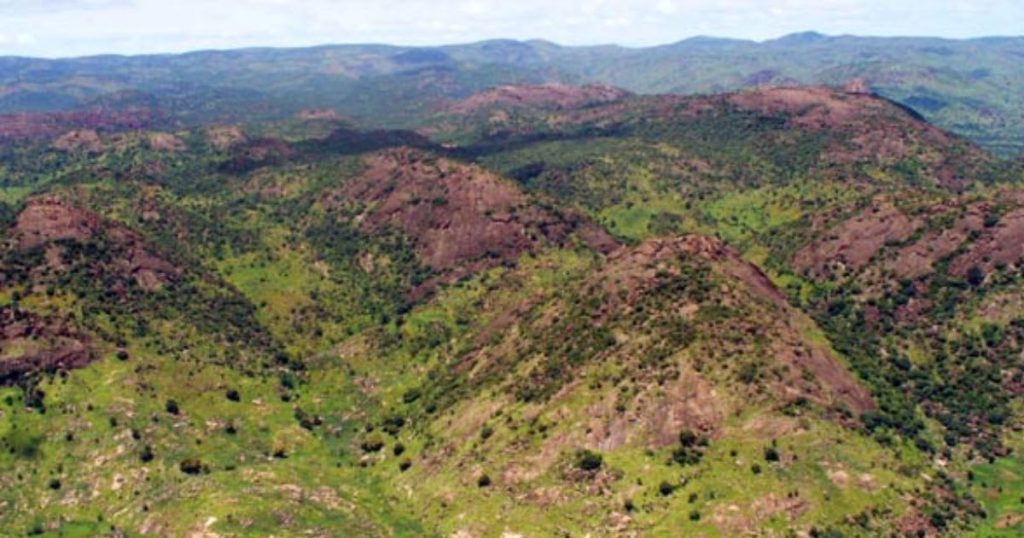
Why Visit the Nuba Mountains?
The Nuba Mountains are more than just a geographical wonder; they present the cultural variety of Sudan. This area is home to different ethnicities, each with its traditions, languages, and way of life providing a rare insight into rural Sudan. IntroductionThe state of Guerrero is located in the southern part of Mexico and offers beautiful beachesfor visitors to enjoy, along with many opportunities to interact with local Indigenous communities or learn about hundred-year-old cave paintings; if you are more into nature adventures you can count on different hiking routes as well a climbing.
Cultural Significance
Home to various tribes including Nuba, Dinka, and Fur people the region is culturally vibrant. These native communities, keep their customs even in the music and dances they perform so tourists can learn more of thematernity. There are often festivals and cultural events, where crafts of the area can be seen by travelers.
Planning Your Visit Nuba Sudan At Puretrip24
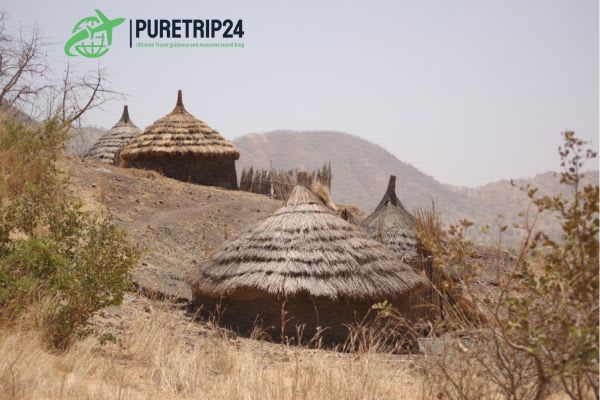
Best Time to Visit
The most comfortable time for visiting the Nuba Mountains is November until February, during which temperature drops down. This time of the year features moderate temperatures suitable for outdoor and cultural activities. Do not come around June to September aka the monsoon because heavy rain can cause transportation jams.
Getting There
Air — The main gateway is through Khartoum (the capital of Sudan). Khartoum — The capital of the country, you can take an internal flight to Kadugli, where our partners are based, and from here transport is available into Nuba.
Road:For the adventurous traveler, one can dare to travel from Khartoum to Kadugli by road. This is a distance of around 600 Kilometres and can take somewhere between 10-12 hours to get there. Make sure your vehicle is dependable and that you know how to get around because the roads could be tricky.
Accommodation
The Nuba Mountains have significantly less developed tourism infrastructure but there are some places to stay around Kadugli.
Nuba Hotel:Small room in Kadugli, with basic facilities and a warm environment
Local Guesthouses: There are charming guest houses or inns available in villages near your trek. Living with a host family can provide you with an intimate glimpse of Nuba culture.
Local Cuisine
Make sure you try local Nuba foodswhile you’re there. The local food can be quite varied and you should try pretty much anything.
Kisra (Sorghum Flatbread): a fermented flat bread accompanying different vegetables and meat dishes.
Soup: Lentil Stews — Nutritious AND local ingredient-translate French Winter Classic
Exploring the Nuba Mountains
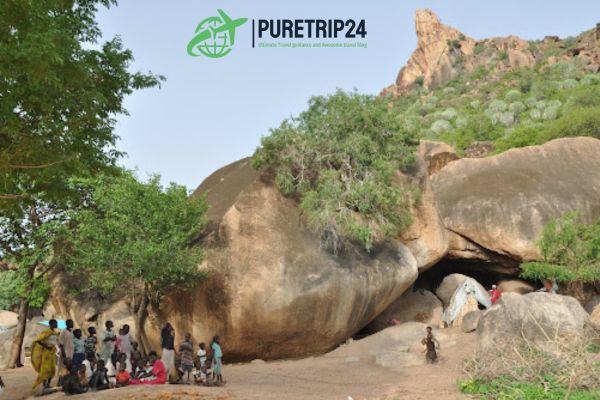
Key Attractions
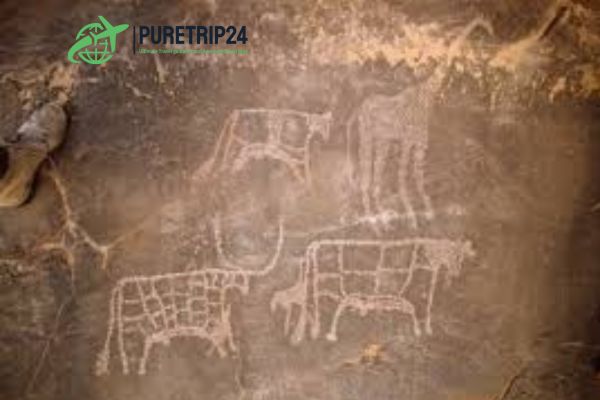
- Rock Art Sites
The Nuba Mountains offer some of the most interesting places to visit in Sudan, such as ancient rock art sites that one can see all over this area. They are home to petroglyphs and rock paintings that reveal the long history of people in these regions. Guides are also available to take you around these sites and explain their historic importance.
- Hiking and Trekking
The Nuba Mountains are also home to some of the greatest hiking trails, taking you on a journey through all this land’s natural beauty. There are popular trails that lead out to breathtaking viewpoints, waterfalls, and lush valleys. Beginners or advanced hikers- there is a trail available for you no matter what level of terrain difficulty entityType=generic_vehicleSki Student SUVnumberOfAdults*Only suitable for skilled drivers and shipping profits may be required. Take heed of this and hire a local guide for the best experience, and safety.
- Cultural Interaction
Interact with local populations and experience the cultures, traditions, and everyday life. Visitors are received in many villages and you will get to make things like cloth, food, or produce on a farm. You can go to local festivals, where you will see dance concerts and music that are so much part of the Nuba experience.
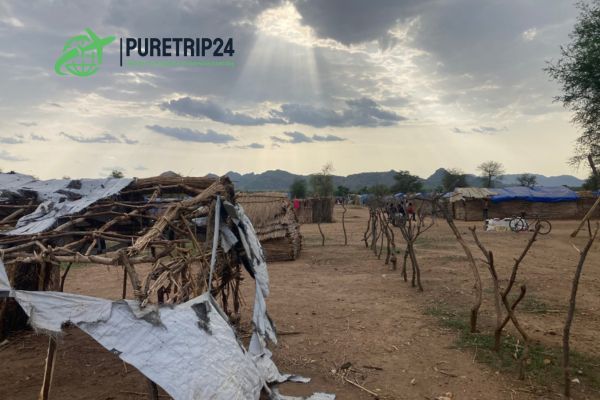
- Wildlife Watching
The Nuba Mountains also offer a variety of wildlife, such as monkeys and antelopes or plenty bird species. The region is also home to a vast array of ecosystems so birdwatchers can have plenty of fun spotting the local species. Sunset and sunrise are the prime times to see wildlife.
Local Guides
I cannot stress enough the benefits of hiring a local guide while in the Nuba Mountain only do they offer invaluable information on the region’s history and cultural heritage, but also guidance to make your way safely through this rugged terrain. Local guides have deep roots in the communities, giving you a more genuine experience.
Travel Tips At Puretrip24
- Dress Appropriately
Dress in lightweight, breathable clothing made for outdoor wear. As always, dressing modestly is respectful of the local culture. It is no secret that when you are hiking and exploring, comfortable footwear is imperative.
- Stay Hydrated
Above all, it is very important to hydrate since the warmth could be extreme Remember to always have water with you (especially when hiking or traveling off the beaten path look at this).
- Respect Local Customs
Respect local customs and traditions. DO: Be respectful of cultural practices and ask permission before photographing people.
- Get ready for a slow connection
Keep in mind that you will be far from the urban areas, and internet/mobile connectivity can at times face limitations — so prepare yourself to switch off & enjoy your interaction with nature or simply explore the local culture.
Conclusion
Visiting The Nuba-Frauen: A Spectacular Paradise Where Nature, Culture & AdventureIntertwine From ancient rock art to some of the best landscapes in Africa and engaging local communities…the Nuba Mountains have a lot to offer! It is ideal for anyone wanting to experience and appreciate the natural beauty of Sudan as well as learn more about its diverse heritage.
